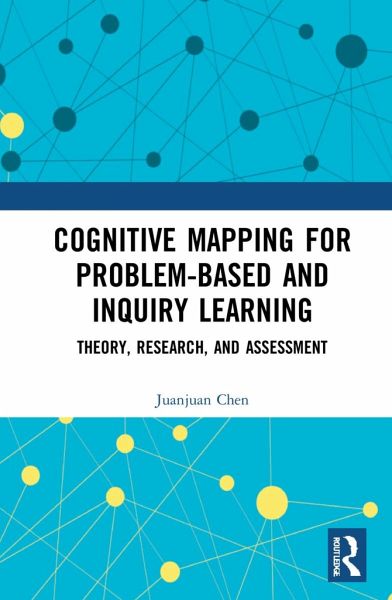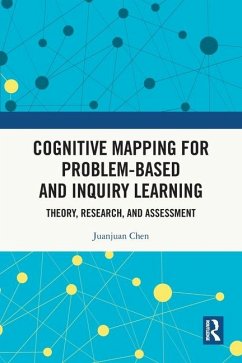
Cognitive Mapping for Problem-based and Inquiry Learning
Theory, Research, and Assessment
Versandkostenfrei!
Versandfertig in 1-2 Wochen
167,99 €
inkl. MwSt.
Weitere Ausgaben:

PAYBACK Punkte
84 °P sammeln!
This book studies how to improve problem-based and inquiry-based learning by incorporating cognitive maps. Problem-based learning and cognitive mapping are reviewed from the perspective of both learning sciences and cognitive sciences, including the underpinning theories of experiential learning, situated learning, collaborative learning, meaningful learning, externalized representations, and visual representations. The result is a comprehensive review and analysis of cognitive mapping-supported problem-based learning, with the topic discussed from cognitive, metacognitive, social, and motivat...
This book studies how to improve problem-based and inquiry-based learning by incorporating cognitive maps. Problem-based learning and cognitive mapping are reviewed from the perspective of both learning sciences and cognitive sciences, including the underpinning theories of experiential learning, situated learning, collaborative learning, meaningful learning, externalized representations, and visual representations. The result is a comprehensive review and analysis of cognitive mapping-supported problem-based learning, with the topic discussed from cognitive, metacognitive, social, and motivational and emotional perspectives. Furthermore, the author presents a theory-driven design, implementation, and analysis of design-based research to improve problem-based learning using cognitive mapping. The book will provide implications for researchers and practitioners of learning sciences, psychology, instructional systems, and cognitive tools.














